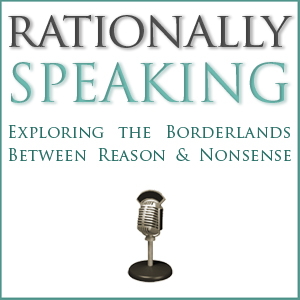Rationally Speaking #198 - Timur Kuran on "Private Truths and Public Lies"
Rationally Speaking Podcast
New York City Skeptics
4.6 • 787 Ratings
🗓️ 11 December 2017
⏱️ 59 minutes
🧾️ Download transcript
Summary
Transcript
Click on a timestamp to play from that location
| 0:00.0 | Today's episode of Rationally Speaking is sponsored by Givewell. They're dedicated to finding outstanding charities and publishing their full analysis to help donors decide where to give. |
| 0:10.5 | They do rigorous research to quantify how much good a given charity does. For example, how many lives does it save or how much does it reduce poverty per dollar donated? |
| 0:19.5 | You can read all about their research |
| 0:21.1 | or just check out their short list of top recommended |
| 0:23.9 | evidence-based charities to maximize the amount of good |
| 0:26.9 | that your donations can do. |
| 0:28.6 | It's free and available to everyone online. |
| 0:31.1 | Check them out at give well.org. |
| 0:33.1 | Thank you. Welcome to Rationally Speaking, the podcast where we explore the borderlands between reason and nonsense. |
| 0:52.9 | I'm your host, Julia Galeeth, and with me is today's |
| 0:56.5 | guest, Professor Timur Karan. Timura is a professor of economics, political science, and Islamic |
| 1:03.0 | studies at Duke University, and he's the author of several books, including Private Truths, Public |
| 1:09.1 | Lies, The Social Consequ the social consequences of preference falsification. |
| 1:13.3 | This book came out almost exactly 20 years ago now, but I picked it up recently because the |
| 1:20.4 | concept of preference falsification has kept popping up in articles about recent current events and trends as a particularly useful |
| 1:31.3 | lens through which to analyze those trends. So I really enjoyed the book and found it very |
| 1:36.9 | useful. And that is what we're going to talk about today. Timur, welcome to rationally speaking. |
| 1:42.6 | Thanks for the invitation. So first, just a basic overview, |
| 1:47.4 | what, how do you define preference falsification? Preference falsification is the act of misrepresenting |
| 1:56.5 | one's desires because of perceived social pressures. And it aims specifically at manipulating |
| 2:06.0 | the perceptions of others about one's motivations. So what would an example be? |
| 2:14.3 | So let me give you a couple of examples that will illustrate two extremes. |
... |
Please login to see the full transcript.
Disclaimer: The podcast and artwork embedded on this page are from New York City Skeptics, and are the property of its owner and not affiliated with or endorsed by Tapesearch.
Generated transcripts are the property of New York City Skeptics and are distributed freely under the Fair Use doctrine. Transcripts generated by Tapesearch are not guaranteed to be accurate.
Copyright © Tapesearch 2025.

